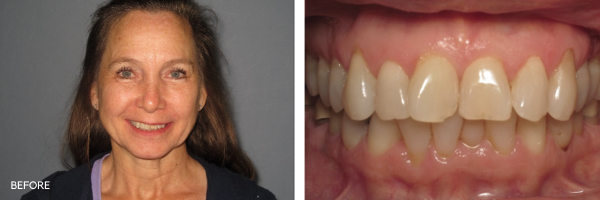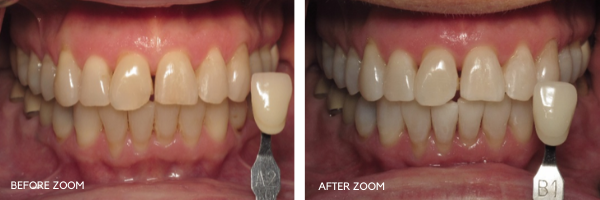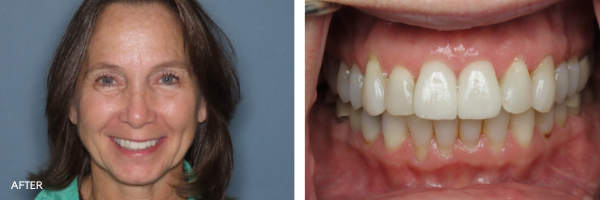A fairly common cosmetic concern among our patients is spotting on their tooth enamel.
Sometimes, the enamel of a tooth gets demineralized, resulting in white or brown spots. These spots are called white-spot lesions (WSLs), hypo spots or enamel bruising, and often result from trauma or infection. Sometimes they appear when braces are removed, and sometimes they are a developmental characteristic.
The good news is that the white spots aren’t harmful. However, many people would prefer to have teeth with a more uniform color.
More good news: There’s an easy, painless and fast procedure to erase this discoloration and restore your tooth enamel to a brilliant white.
At Eggert Family Dentistry, Dr. Elizabeth and Dr. Jeff recommend the Icon procedure for patients who want to get rid of these white spot discolorations.
Icon is the resin infiltration treatment we prefer at Eggert Family Dentistry. It’s a minimally invasive restorative treatment that penetrates existing enamel and helps restore the minerals, thereby fading the spots.
Advantages of Icon Resin Treatment
Icon resin treatment is fast, simple and non-invasive. It takes place in a single visit and requires no shots, no anesthesia, and no drilling. After a painless rubbing of the surface in question to remove the spots, we apply a drying agent and then the resin infiltrant. After about three minutes, we remove the excess resin and cure the resin with light. We complete the process a second time to ensure a protective coating on the surface, polish the tooth, and you are ready to go home with a brand new-and-improved smile – after only 45 minutes to an hour in the chair!
How Does the Icon Treatment Work?
The white spots result from demineralization and subsequent remineralization on the surface of the tooth. Icon reconstructs the collapsed architecture of the tooth caused by demineralization. When applied to the tooth, the Icon resin has similar optical properties to those of natural enamel, so it replicates the natural shade of the tooth.
Benefits of Icon
It’s far less invasive, less expensive and faster than alternatives like fillings or veneers. It can easily be completed on patients young and old. With other treatments to correct white spots, like veneers, it is important to wait until the patient’s growth is complete. Even better, teeth that have undergone Icon treatment still respond to bleaching.
If you’re curious about this very conservative, non-invasive, same-day procedure, call Dr. Elizabeth or Dr. Jeff at Eggert Family Dentistry to learn more, 651-482-8412. We’d love to talk to you about your options for improving your beautiful smile by transforming spotted teeth to a consistent, uniform color.





